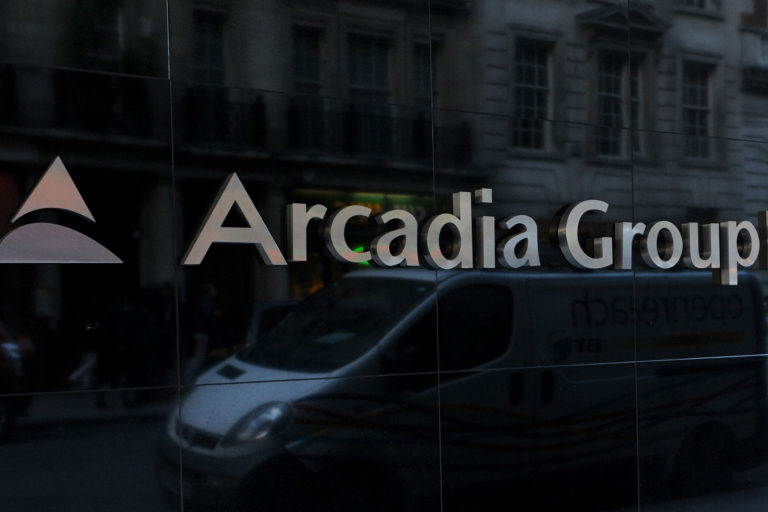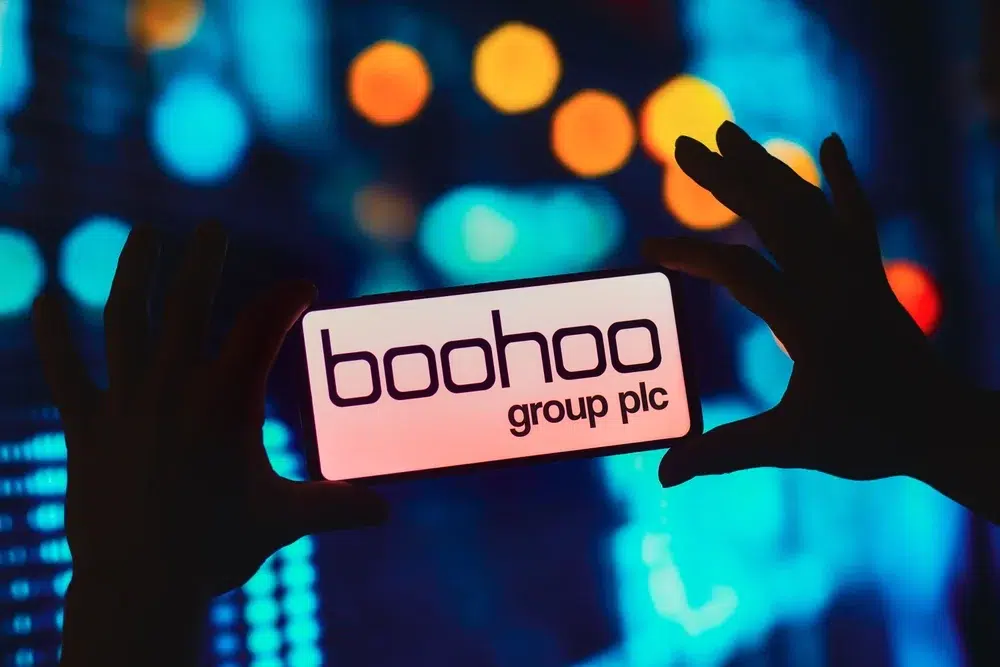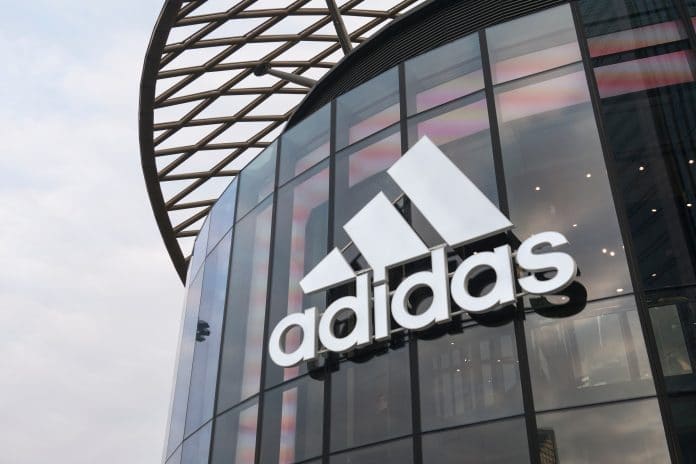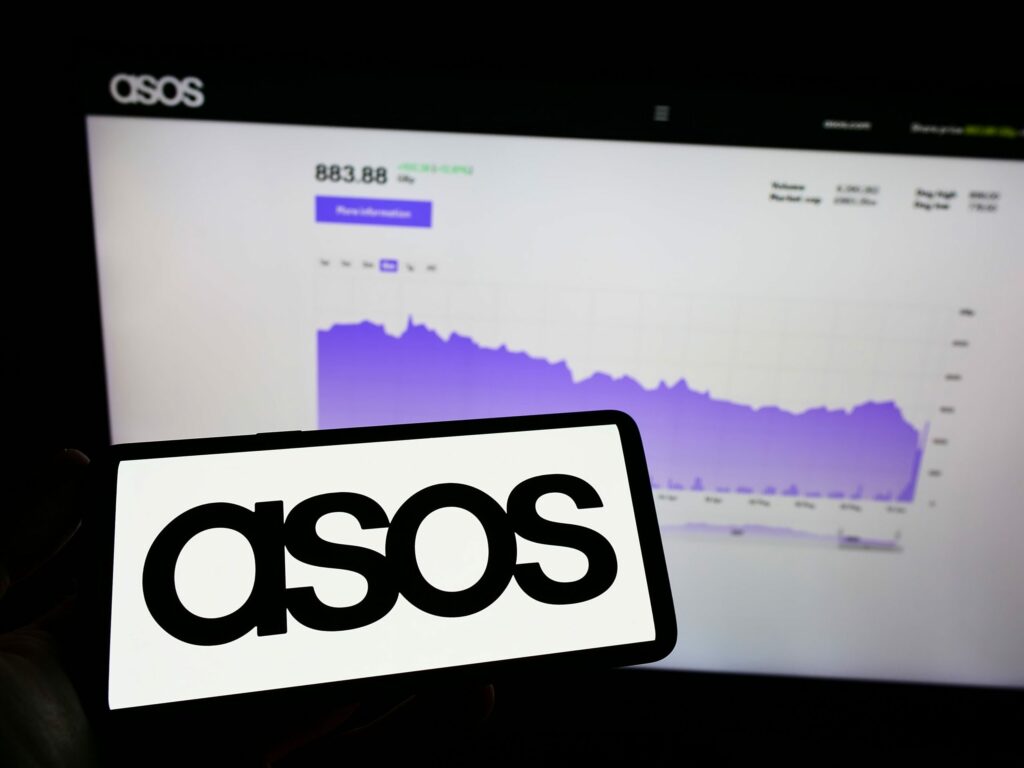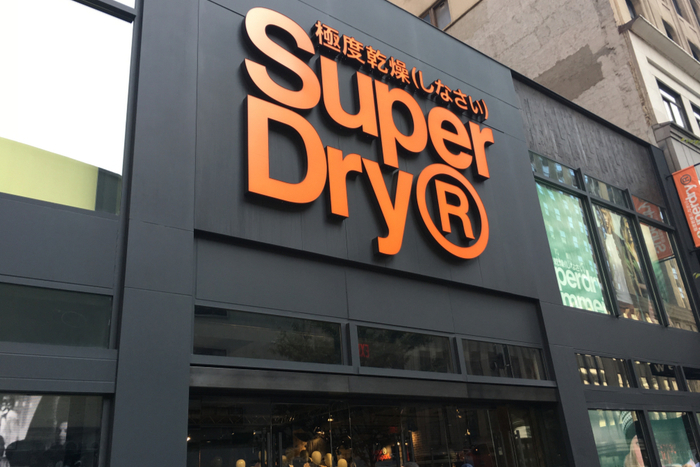A BRIEF TIMELINE
1903: 18-year-old Lithuanian immigrant Meshe David Osinsky borrowed £100 from a relative to set up The Cross-Tailoring Company in Holywell Street, Chesterfield. Osinsky’s initial operation, a men’s clothing manufacturer, tailoring and retailing operation, became the genesis for the Burton menswear chain.
1909: Osinsky changed his name to Montague Burton and steadily expanded his business after tapping into growing demand for affordable and smart menswear, working with the mantra that “good clothes develop a man’s self-respect”.
1910: The Cross-Tailoring Company’s headquarters moved from Chesterfield to Leeds.
1914: The Cross-Tailoring Company changed its name to Burton.

1929: The company was first listed on the London Stock Exchange, by which time it had 400 stores, factories and mills.
1946: Burton acquired Peter Robinson, a chain of department stores that was founded in 1833.
1952: Burton died. At the time of his death, the company he founded was the largest multiple tailor in the world.
1954: Burton purchased Jackson The Tailors before making deals with a raft of other stores.
1964: The Topshop chain debuted in 1964 as a section within a Peter Robinson branch.
1965: The basement of Peter Robinson’s Oxford Circus flagship – the current site of the modern Topshop flagship – was converted to become a Topshop. It also marked the start of the decline of Peter Robinson as a brand.
1966: The Burton chain was the official suit supplier of the England national football team for the World Cup.

1967: Burton Group rebranded as Arcadia Group.
1970: Topman was launched to cater for menswear.
1971: Arcadia Group acquired plus-size retailer Evans.
1974: The first standalone Topshop stores opened.
1979: Arcadia Group acquired Dorothy Perkins as it sought to expand into the mainstream womenswear market, following the success of Topshop and Evans. By the end of the 1970s, Peter Robinson had disappeared from the high street.
1984: Arcadia Group launched a new premium chain, Principles, to suit the taste of the fashion culture in the 1980s.
1985: Arcadia Group launched Principles for Men following the success of the ladies’ division. The group also acquired Debenhams, then the largest department store group in the UK. The large store Browns of Chester, which had previously been part of the Burton Group, was subsequently moved across to trade as part of the Debenhams chain.
1992: Topshop and Topman joined forces to open their joint flagship store on Oxford Street, which claimed at the time to be the largest fashion store in the world.

1993: Arcadia Group, which was operating in the region of 1600 stores at the time, undertook a review of its trading space portfolio. It reviewed the location and branding of its stores in each town and city in which it operated. This led to changes in hundreds of leases.
Arcadia Group began to roll out new ways of working, such as operating increasing numbers of combined stores where several brands shared the same unit. Thus, the Topshop/Topman and Burton/Dorothy Perkins units were developed. This was a way of reducing overheads while maintaining geographical spread of the brands.
1996: Arcadia Group acquired mail order catalogue firm Innovations, along with the Hawkshead brand and Racing Green.
1997: Innovations and some related brands were sold to the home shopping group Great Universal Stores.
1998: Arcadia Group demerged from Debenhams and separated it from the rest of the group. Debenhams became a separate firm with its own listing on the London Stock Exchange.

1998 (cont’d): Arcadia Group launched a new menswear chain, SU214 (Style Union 214), which took its name from its flagship store at 214 Oxford Street in London. The chain aimed to capitalise on the growing demand for high-end casualwear. Arcadia Group also acquired Wade-Smith, a retailer of designer childrenswear, menswear and womenswear. Wade Smith Jr stores opened in locations such as Kent’s Bluewater shopping centre.
1999: Arcadia Group launched Zoom, with the aim of making the brand synonymous with online shopping. Zoom had links to all of Arcadia’s online clothing stores, as well as the online stores of high street brands such as Carphone Warehouse and HMV. It had 24 merchants in all and was run as an independent, wholly-owned subsidiary of Arcadia Group. Shortly its launch, Associated Newspapers acquired a 50 per cent stake in Zoom.

1999 (cont’d): Sir Philip Green acquired UK-based conglomerate Sears, and transferred its Warehouse, Wallis, Richards, Miss Selfridge and Outfit retail chains to Arcadia Group when he acquired it three years later.
2000: Arcadia Group launched a strategy where underperforming brands were closed or scaled down. The Wade Smith Jr, Principles For Men and SU214 brands ceased to trade as standalone stores and were launched as concessions. The remaining standalone Topman stores were replaced by combined Topshop/Topman stores. Separately, Sir Philip Green acquired BHS in a £200 million deal.
2002: Arcadia Group was bought by Taveta Investments, which is owned by Sir Philip Green’s family, for £850 million. Subsequently, Arcadia Group became a private company and was delisted from the London Stock Exchange. In addition, Green began selling off some of Arcadia Group’s fascias – some of which were from Sears – including Principles, Warehouse, Racing Green, Hawkshead and Wade Smith.
2004: Green tried to take over high street giant Marks & Spencer but pulled out after getting very close to sealing a deal.

2005: Green bought the UK retail stores of Etam and Tammy and these stores were converted into other Arcadia Group fascias. Tammy was subsequently retailed through BHS and Outfit stores. Some of the stores not retained by Arcadia Group were taken up by other fashion firms, with Monsoon acquiring a large number. The Green family cashed out £1.2 billion in dividends from Arcadia Group.
2006: Green was made a Knight Bachelor in the 2006 Queen’s Birthday Honours “for services to the retail industry”.
2007: Topshop launched the first of 14 collaborations with supermodel Kate Moss, who remained the face of the retailer for another three years.
2009: BHS became integrated into Arcadia Group. As part of the changes, some BHS retail stores were to begin to carrying Arcadia Group brands as concessions, enabling the firm to expand the presence of its brands without having to lease large numbers of new stores.
2010: Arcadia Group was considering a review of its property portfolio, as several hundred of the firm’s existing store leases expired over the coming three to five years. Green confirmed that the number of stores under lease was to fall in 2013 and 2014, which saw the closure of a number of stores.
Arcadia Group also moved away from high street locations and into small-to-medium-sized stores within towns and cities, citing the rise in online shopping and “destination” centres as a reason.
Topshop crossed the Atlantic to open its first store outside the UK, in New York. Back in London, protesters gathered outside Topshop’s Oxford Street store, alleging that Green was avoiding income tax.
2015: BHS was sold for £1 to Dominic Chappell’s Retail Acquisitions, despite continued losses, in March.
2016: In partnership with Green, Beyonce founded Ivy Park – an athleisure label named after her daughter Blue Ivy – which was sold through Topshop.
In April that year, BHS collapsed – just 13 months after Chappell acquired it. It was soon revealed that BHS had a pension deficit of £571 million. The scandal followed both Chappell and Green for months.

2016 (cont’d): MPs passed a motion to remove Green’s knighthood over the pensions scandal. He later payed £363 million into the pension scheme and kept his knighthood.
2017: In March, Topshop managing director Mary Homer stepped down after 11 years in the role, during which Arcadia Group’s flagship retail chain expanded globally. Paul Price then joins as chief executive of both Topshop and Topman in September.
2018: Green becomes the centre of a #MeToo scandal for the City after Lord Peter Hain, operating under cover of parliamentary privilege, named him in a speech in Parliament. It came a day after The Daily Telegraph ran a front page story that had Green’s identity hidden due to an injunction. The story became a national scandal with a string of allegations from employees accusing Green of inappropriate behaviour ranging from racist, physical and sexual abuse or misconduct.
Green strongly denied all the allegations and continues to do so.
The scandal saw Beyonce’s Ivy Park distance itself from Topshop by cutting ties with Green altogether. In addition, Baroness Karren Brady – one of the stars of The Apprentice – quits the board of Arcadia Group parent company Taveta Investments. She said she quit the board after her principles “didn’t square” with the allegations against Green.
2019: Wallis, Evans, Dorothy Perkins and Miss Selfridge exits the Irish market. Arcadia Group said the full closure of its Irish operations would be complete by late 2020 or early 2021.
March 2019: Green was exploring a CVA to restructure Arcadia Group, which could lead to more shop closures and job losses.
April 2019: Two restructuring specialists were added to Arcadia Group’s board to oversee the implementation of the CVA. The recorded a £300 million deficit in its pension fund.
May 2019: Arcadia confirms plans to close 23 stores across the UK and Ireland along with the possibility of further closures worldwide and rent cuts as part of seven CVA proposals.

May 2019 (cont’d): Green offered to provide £185 million in additional funds from property assets to help reduce Arcadia Group’s pension deficit as part of a bid to win approval for the seven CVAs.
June 2019: Arcadia Group’s CVAs are approved by the required majority of creditors. Green’s wife Lady Tina Green said she would pay £50 million into the group as long as it meant there would be no risk of a legal challenge to the CVA. The CVAs eventually led to rent cuts on 194 stores, the closure of a total of 48 stores in the UK and Ireland, as well as all 11 of its Topshop sites the US.
September 2019: Accounts filed at Companies House laid bare the financial struggles at Arcadia Group. The accounts covered the 12-month period ending September 2018.
The Topshop and Topman fashion chains on their own saw full-year pre-tax losses deepen significantly to £505.1 million. This came against losses of £3.9 million in 2017. The fashion chain also booked a nine per cent drop in sales to £847 million. Topshop and Topman’s results were hit by £488.8 million in charges, including for onerous shop leases on loss-making stores and write downs on the value of assets.
Meanwhile, Arcadia Group as a whole swung to an operating loss of £137.5 million – a contrast to the £119.3 million operating profit recorded in 2017. It also booked a full-year pre-tax loss of £93.4 million, compared to a pre-tax profit of £164.5 million in 2017. On the other hand, EBITDA plunged 40 per cent year-on-year, dropping from £137 million in 2017 to £76 million in 2018. Arcadia Group also saw turnover drop by 4.5 per cent year-on-year to £1.8 billion, which it attributed to “the ongoing challenge global market conditions for retailers”.
The retail giant said it had been impacted by reduced profitability from its bricks-and-mortar stores, and that it was not possible to reduce store costs when in-store sales were declining simultaneously.
December 2019: Topshop CEO Paui Price resigns. Arcadia Group chief executive Ian Grabiner assumed his responsibilities.
March 2020: Arcadia Group cancelled £100 million of clothing orders, temporarily closed 444 shops and furloughed 9294 employees as the Covid-19 pandemic began affecting UK businesses.
July 2020: Arcadia Group makes 500 redundancies at its 2500-strong head office in an effort to reduce costs following the impact of the Covid-19 pandemic. Later that month, speculation began to arise in media that Arcadia Group was planning to launch another restructure – just over a year after its seven CVAs.
September 2020: The former London headquarter for Burton was put up for sale in a bid to seek fresh funds for Arcadia Group. News emerged that Green was working with Deloitte on fresh restructuring as Arcadia’s stable of brands continued to struggle in both in-store sales (due to sluggish post-lockdown consumer spending) and online sales (losing to the likes of Boohoo and Asos).
November 2020: Green’s retail empire prepares to appoint administrators from Deloitte, after talks with a number of lenders about an emergency £30 million loan hit a dead end. Mike Ashley’s plans for an emergency £50 million loan to Arcadia Group had also reportedly fallen through.
November 30, 2020: Arcadia Group ultimately collapsed into administration, affecting 13,000 jobs.
December 2020: UK ministers said they were keeping “a close eye” on Arcadia Group’s administration due to the controversy surrounding the management of the company.
THE REASONS
Sir Philip Green’s rough-around-the-edges no-nonsense attitude and tendency to talk freely had initially won him many friends in the press. But after a series of scandals, Green’s credibility turned sour, particularly after the huge pension black hole that followed when BHS collapsed, and when he became embroiled in a #MeToo scandal in 2018.
Before the scandals, Green’s business career highlight included being chief executive of retail chain Amber Day. He resigned in 1992, but his rise to prominence in retail began when he acquired Sears in 1999 followed by BHS in 2000, and then Arcadia Group in 2002.
Earlier this week, Arcadia Group fell into after blaming the Covid-19 pandemic for “severely impacting” sales across its stable of brands. Administrators from Deloitte will comb through Arcadia Group’s books to see what value is left in Green’s retail empire. This could include stock, freeholds and any other assets – with Topshop’s famous flagship store on Oxford Street likely to be the block for raising cash. There is also the chance of the business becoming online-only, much like Oasis & Warehouse after Boohoo Group bought them out of administration earlier this year.
Catherine Erdly, founder of The Resilient Retail Club, argued that Arcadia Group’s problems cannot solely blamed on the pandemic. She said the group had a number of challenges, such as the increasing cost of manufacturing overseas, the impact of Brexit on the currency which has eaten into those profits, increase in the living wage, and the controversial business rates which have hit all physical retailers hard.
“Arcadia struggled to remain relevant to younger, socially aware, digital consumers”
“On top of that, it cannot have helped to have a toxic association with Sir Philip Green and everything that he has come to represent as the unacceptable face of capitalism,” she said.
“The group are also widely criticised for their behaviour during the pandemic due to their treatment of overseas garment workers when they cancelled large numbers of orders due to the coronavirus.”
David Beadle, vice president at credit rating agency Moody’s, told Retail Gazette that heavy discounting has added to Arcadia Group’s challenges.
“Arcadia is the latest in a long line of once strong clothing retailers to struggle to keep up with consumers’ insatiable desire for newness, value, convenience and engagement,” he said.
“The enforced closures of physical stores during two national lockdowns exacerbated the multi-year hit to credit quality of many store focused retailers due to the margin dilutive shift online.”
Erdly added that Arcadia Group was struggling already and would have struggled to keep up with other online businesses – especially Topshop, which lagged behind with its digital presence.
Arguably, Green’s retail empire became a victim of its earlier successes despite its legacy position as a market leader in fashion retail. The increased competition from new online brands over the years, such as Asos and Boohoo, piled pressure on the firm and its digital offering was late to the party.
“Retailers like Topshop and Miss Selfridge have never had a huge social media presence”
Liam Patterson, chief executive at marketing tech platform Bidnamic, said that rather than adapting to modern customer needs with a strong ecommerce offering, Arcadia Group resisted innovation.
“The lack of a competitive online offering, combined with other issues such as the racial, physical and sexual abuse allegations around Green meant that the brand struggled to remain relevant to younger, socially aware, digital consumers,” he argued.
Meanwhile, Richard Haigh, managing director at Brand Finance, said that according to the Global Brand Equity Monitor survey, 93 per cent of UK consumers were aware of Topshop and 60 per cent are familiar with Arcadia Group. Despite this, he argued that Topshop’s sheen has slipped in recent years – not helped by the various scandals that Green has found himself in, from the BHS collapse to bullying and harassment claims.
“The fall of Arcadia represents the slow crumbling of bricks-and-mortar retail as online competition continues to develop,” Haigh said.
“The question is: will Topshop be consigned to the bin or will it be given another chance?
“There is life left in the brand if it finds its way into the hands of someone with the correct vision and strategy.”
Melissa Minkow, head of retail at digital consultancy firm CI&T, told Retail Gazette that Arcadia Group’s lack of digital innovation was certainly a key culprit.
“Beyond the increasing irrelevance of mid-tier retail, Arcadia’s decision to leverage more of a brick-and-mortar backbone, and investing less than it needed in keeping up with social and ecommerce, allowed it to fall behind in establishing the omnipresence possessed by its rivals,” she explained.
“Digital commerce is constantly evolving, and retailers that maintain more of a transactional, versus experiential, online platform are falling behind fast.”
“It cannot have helped Arcadia to have a toxic association with Sir Philip Green”
Despite the lack of digital innovation being the key culprit in Arcadia Group’s demise, Harvey Morton, founder of social media agency Harvey Morton Digital, said the pandemic was “the final nail in the coffin” for the retail giant.
“Covid-19 has forced us all to become savvy online shoppers,” he said.
“Retailers like Topshop and Miss Selfridge have never had a huge social media presence, and Arcadia spent huge sums on window displays and traditional media advertising.
“They failed to notice how retail was changing, and as a result, haven’t been able to connect with their target audience.”
Erdly added that in order for Arcadia Group to make a comeback, it would need to return in a “different format” and shed a lot of stores to consolidate its physical footprint.
“It seems unlikely that all of the retailers will be revived, but I would expect it to be more likely that only the most successful, most profitable ones remain,” she said.
Arcadia Group’s decline comes just as department store chain Debenhams begins it liquidation – with both administrations placing 25,000 jobs on the line in total.
The future of retail in the UK is clearly unpredictable and enduring challenging times exacerbated by the pandemic, but retailers remain at threat if they fail to connect with consumers. Improving digital offerings is crucial nowadays for retailers, as those who have lacked this have fallen behind.
In many ways, Arcadia Group’s and Debenhams’ struggles are rooted from the same plant. As the likes of online retailers like Boohoo and Asos accelerate in growth and continue to engage with consumers – either with personalised emails or social media – Arcadia Group and Debenhams have a track record of falling behind and failing to adapt to the ever-changing consumer behaviours.
It’s also clear that Arcadia Group cannot solely blame the pandemic. When its accounts filed at Companies House last year revealed huge losses and onerous costs, it showed that the firm’s struggles had come to light long before Covid had even begun to affect UK retailers.
Click here to sign up to Retail Gazette‘s free daily email newsletter

